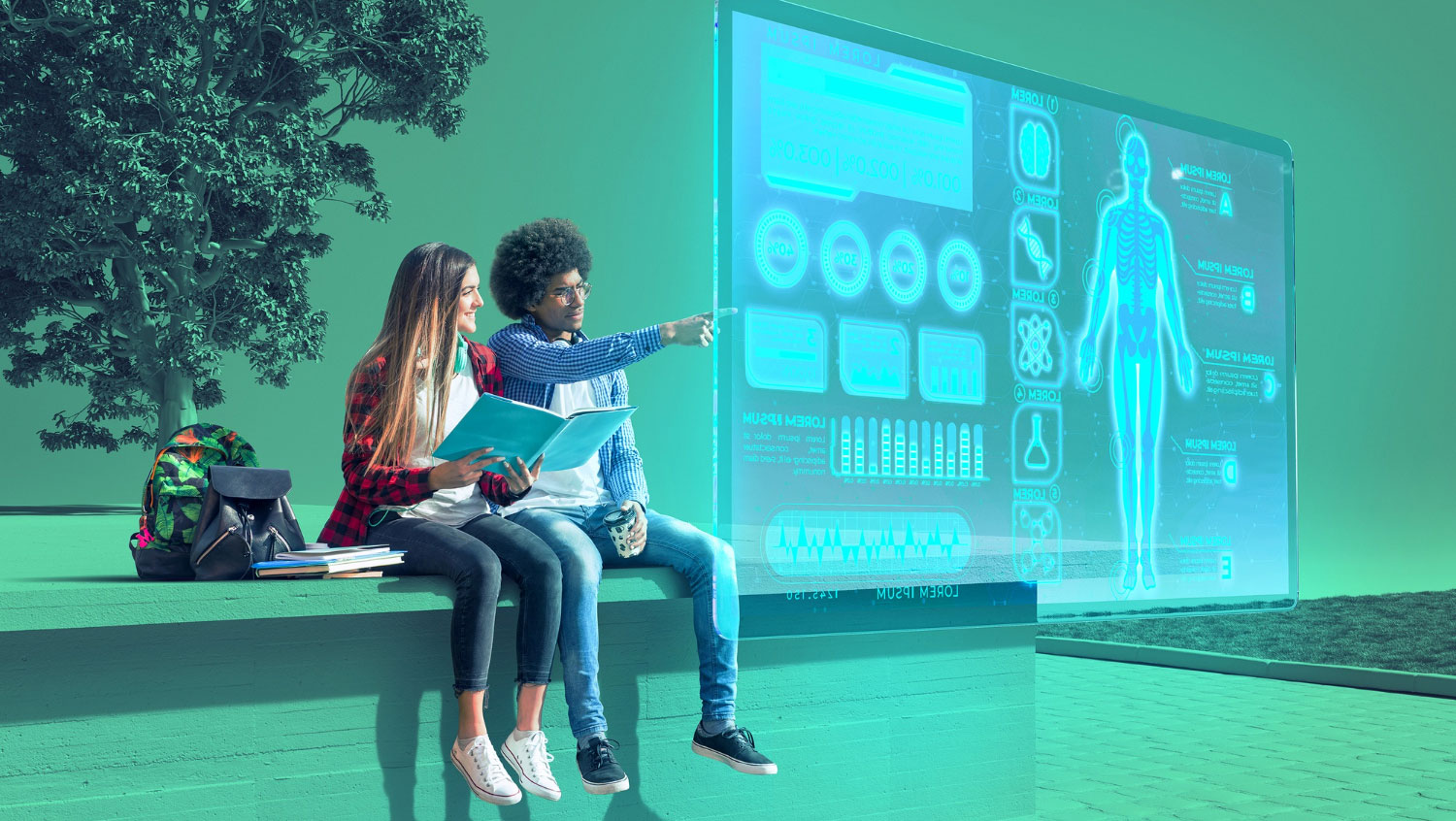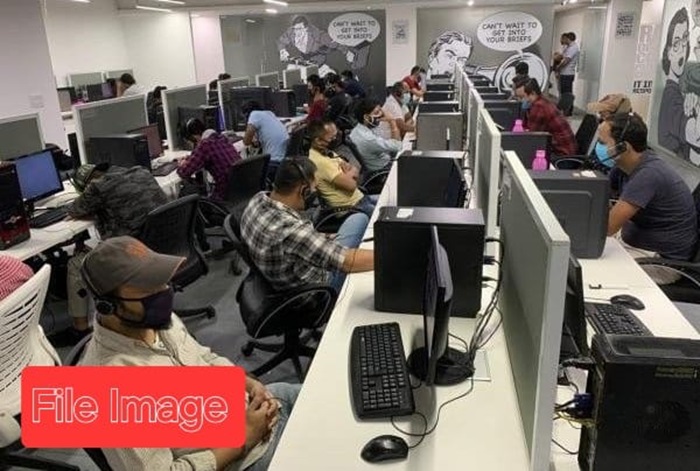The Impact of Artificial Intelligence (AI) on Education
Enhancing Learning Experiences

Artificial Intelligence (AI) is reshaping the landscape of education, offering new opportunities to enhance learning experiences and improve outcomes for students and educators alike. By harnessing the power of AI, educational institutions can personalize learning, streamline administrative tasks, and provide targeted support to students.
One of the key benefits of AI in education is its ability to personalize learning experiences. Adaptive learning platforms use AI algorithms to analyze student data and tailor instruction to meet the unique needs of each learner. For example, AI can identify areas where a student may be struggling and provide additional support or offer advanced material to students who are ready to move ahead.
AI can also help educators save time on administrative tasks, such as grading assignments and managing student records. Automated grading systems can provide instant feedback to students, allowing them to learn from their mistakes and improve their performance. Similarly, AI-powered tools can help educators track student progress and identify areas where additional support may be needed.
Another area where AI is making an impact is in providing personalized support to students. Chatbots powered by AI can provide students with instant answers to their questions, whether they are related to coursework, schedules, or other aspects of student life. These chatbots can also offer guidance on study habits and time management, helping students develop the skills they need to succeed.
AI is also being used to develop virtual tutors that can provide one-on-one support to students. These virtual tutors can adapt their teaching style to match the individual learning preferences of each student, providing a more personalized and effective learning experience.
Despite the many benefits of AI in education, there are also challenges that need to be addressed. For example, there are concerns about the potential for bias in AI algorithms, particularly when it comes to making decisions that affect students’ academic or professional futures. Additionally, there are questions about the ethical use of AI in education, particularly when it comes to issues of privacy and data security.
In conclusion, AI has the potential to revolutionize education by providing personalized learning experiences, streamlining administrative tasks, and providing targeted support to students. As educators continue to explore the possibilities of AI, the future of education looks brighter and more innovative than ever before.

Related News
Are Leaders Born or Made? A Personal Reflection on Finding the Leader Within
The debate about whether leaders are born or made has sparked countless discussions, and my personal belief is that true leaders are…
Read MoreSri Lanka National Association of Counsellors Releases Groundbreaking Book for Youth
Carol Gooneratne Amarasekara - SRILNAC President In celebration of World Mental Health Day, observed globally on the 10th of October, the Sri…
Read MoreACCA’s Approved Employer Program Elevates Finance Careers and Industry Standards
Ruchera Jayawardena Peries Prioritizing the needs of both professionals and employers, The Association of Chartered Certified Accountants (ACCA) is setting benchmarks in…
Read MoreBristol Institute Launches Affordable Foundation Programs for Post-O/L Students
The Bristol Institute has commenced their intake for foundation programs in Business Management and Accounting & Finance, aimed at students who have…
Read MoreBritish Council Sri Lanka & UKVI Host Seminar for UK Education Agents and School Counsellors
The British Council Sri Lanka recently hosted an interactive and informative seminar for UK education agents and school counsellors in Colombo recently.…
Read MoreCourses
-

IMC – Bachelor of Psychology
IMC Education Overview IMC Campus in partnership with Lincoln University College (LUC) Malaysia offers Bachelor of Psychology Degree right here in Sri… -

ANC – BA (Hons) International Business Management (Top-Up)
ANC Education Overview Designed in partnership with public and private business organizations, this program develops one’s ability to critically evaluate business models… -

IIT – BSc (Hons) Computer Science
IIT Campus Overview BSc (Hons) Computer Science provides a solid foundation and training regarding the fundamentals of the computer science field, along… -

APIIT – BSc (Hons) Cyber Security
APIIT Sri Lanka Overview Our BSc (Hons) Cyber Security award is designed to launch your future career in the protection of software… -

ICBS – BSC (Hons) Business Management with Marketing Management
ICBS Overview The BSc (Hons) Business Management with Marketing program, awarded by Queen Margaret University (QMU), is a highly regarded degree that… -

UTS – Diploma of Science
UTS College Sri Lanka Overview The Diploma of Science is designed to empower you to apply scientific thinking and analysis to important… -

CSA – Master of Architecture and Environmental Design
City School of Architecture Overview The Master of Architecture and Environmental Design Degree at CSA is awarded by the University of the… -

APIIT – BSc (Hons) International Business Management
APIIT Sri Lanka Overview Increasingly businesses are becoming more and more international. This requires business management professionals to have knowledge, skills and… -

IIT – BSc (Hons) Artificial Intelligence And Data Science
IIT Campus Overview The BSc (Hons) Artificial Intelligence and Data Science course is awarded by Robert Gordon University (RGU) in the UK… -

ICBS – International Degree Foundation in Business / IT
ICBS Overview The Scottish Qualification Authority (SQA) is a globally recognized organization dedicated to education and qualification development. SQA is responsible for… -

APIIT – BA (Hons) Finance and Business Enterprise
APIIT Sri Lanka Overview Finance and accounting are no longer just about taxation and the management of financial capital. This award will… -

APIIT – MBA General
APIIT Sri Lanka Overview The MBA is awarded by Staffordshire University, UK. This award is an advanced course of study in management… -

ANC – LLM in International Business & Commercial Law
ANC Education Overview This course is designed for graduates of law, business and finance in a legal or a corporate job role… -

AOD – BA (Hons) Fashion Design and Marketing
Academy of Design Overview The syllabus is from the UK’s Northumbria University, as one of their most revered flagship programmes and is… -

APIIT – MSc. Marketing Management
APIIT Sri Lanka Overview This MSc Marketing Management degree – awarded by Staffordshire University, UK is an advanced course of study in…
Newswire
-

40 foreigners involved in online scams arrested in Sri Lanka
ON: October 6, 2024 -

Advisory for several lightning issued
ON: October 6, 2024 -

IRD exceeds 70% of 2024 revenue targets
ON: October 6, 2024 -

Sri Lanka’s Vehicle Imports : What we know so far
ON: October 6, 2024











